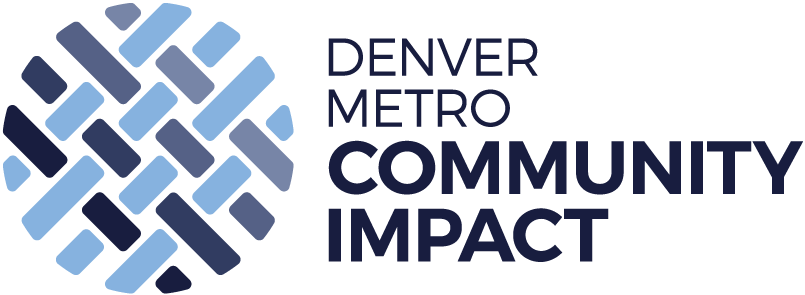#ParkHillTalks - 2019 in Review
Park Hill Collective Impact (PHCI) sees the community as the primary partner and director of our work. We are not only informed through engagement, but also invite community leaders to participate at deeper levels. Through Colorado Health Foundation’s Amplifying Health Advocacy grant, PHCI has mobilized a truly unique approach to engaging the community through what's referred to as #ParkHillTalks.
#ParkHillTalks at Park Hill Library
The Collective Impact framework is strong in engaging organizations who provide services and supports to the community, but has lacked success in engaging and being informed by community residents and members. To address this challenge, PHCI has worked to train community partners and members in the facilitation process of small format, community meetings called #ParkHillTalks. #ParkHillTalks are structured, with intent, to provide smaller and more comfortable settings for residents and community members to identify challenges in their community, create innovative ideas for solutions, as well as recognize and elevate leaders from within. This platform provides community members opportunities to engage in the work of PHCI, while helping the PHCI Network collect community voice, define success, and recognize community leaders. The talks are authentically and organically shaped by the attending community members: allowing for shared community interests to be naturally discovered and discussed.
In 2019, we hosted 22 talks, involving over 270 unduplicated community members and have discovered some very clear themes and issues emerging. The main and most discussed theme is economics/housing, which elicited stories of loss of community, culture, and diversity (both racial and socioeconomic). This same issue has also been recognized as a national urban trend for communities of color (Florida, 2017). Other themes that arose included education and youth leadership, but still often related to the issues and impacts of gentrification, displacement, and economic distress.
Gentrification and displacement has significantly impacted Park Hill, as felt by the community and demonstrated in US Census statistics. This has added a difficult challenge to the Collective Impact work: the population that PHCI is aiming to impact most is at risk of no longer being able to afford living in the community. Instead of being discouraged, PHCI has leveraged this challenge to rally the network: this is not a time to give up. It is a time of urgent intervention that will see change from community wealth building, community pride, and organized action. With the information gleaned from the #ParkHillTalks, the network can operationalize creative and coordinated solutions within the community, and the collective of partners, elected officials, and policymakers.
#ParkHillTalks with the Mayor
Even though we consider #ParkHillTalks a strong success in building momentum for directing our collective impact efforts, there were also some clear challenges: engaging marginalized communities is tough. We noticed that, in all our efforts, we still weren’t reaching the neighbors we aim to impact the most. This is due to a number of factors for residents and families of the community that could include: busy schedules from multiple jobs, strange working hours, or child activities; not being reached by the marketing; not feeling motivated enough by the opportunity to engage; the self-perception of a low-powered voice; and distraction from the wealth of entertainment available, such as Netflix, Hulu, and other ways of decompressing from the stress of a day. As big changes continue to arrive in the community, public meetings are sparsely attended, while the actual attendance is not representative of the diversity of the community. Largely, Northeast Park Hill faces extreme challenges due to a disorganized, reactive, and low-power community voice.
To build upon the success of #ParkHillTalks and further reach the true voice of Park Hill, the community would like to take the engagement to the doorstep of our neighbors. We will do this by financially investing in community leaders to build relationships with people that Live, Learn, Play, Work, or Worship in Park Hill. Over the course of three years, this will create a more organized and engaged community that builds neighborly connection and provides valuable qualitative data to direct the collective impact partnerships; ultimately benefiting the neighborhood for generations to come, while preserving the rich cultural history.
We will form five Advocate Councils that will constitute Community, Education, Youth, Business, and Multi-Faith. Each group will be made up of community members charged to build relationships; promote and attend community meetings, while advocating on behalf of their neighbors’ voices; hosting their own #ParkHillTalks meetings, and submitting reports to PHCI on their findings. PHCI has leveraged the strength of our partnerships to support these efforts, having enlisted the help of the Registered Neighborhood Organizations (RNOs), the City & County of Denver (Denver Economic Development & Opportunity and Councilman Herndon), FaithBridge, BeWell, The Foundation for Sustainable Urban Communities, Denver Opportunity Youth Initiative, and Warm Cookies of the Revolution.
Through this expansion of #ParkHillTalks, PHCI will manage the collective impact efforts of organizing partnerships, resulting advocacy efforts, marketing, data tracking, administration, and training of the council members. Ultimately, we are aiming to climb Arnstein’s Ladder of Citizen Participation to “Citizen Control” (Arnstein, 1969), giving the community voice the most powerful position in our work. This will be done by creating a workflow that starts with the voice of the community and creates solutions that can address individual, family, community-wide, and policy level issues.
Workflow of Advocacy
Workflow of Advocacy - Community Voice -> Community Advocate -> Reporting/Public Meeting -> Collective Impact -> Partner/Community Work -> Advocacy/Solution/Change
The workflow above will allow us to directly impact the health of Park Hill in a number of ways. For an example of a family-level solution, imagine that there is a family struggling to pay rent and is facing eviction and potentially homelessness. The community advocate will have built a trusted relationship with the family hearing their frustrations and experiences, which would then be put into a report that would reach PHCI. At this point the collective impact work would begin, as PHCI identifies the partners and resources that could help the family. The partners and the community would then work together to create the solution that would ultimately make its way back to helping that family and many others in the community.
In another example, imaging that a major redevelopment is about to occur. The community has voiced its desire for first-time home buying as well as affordable for-sale and rental opportunities. The community advocates, charged with staying current on neighborhood changes, would galvanize the voices of the community and prove how important it is for them to show up to the public processes to plan and develop that land. With an organized community, PHCI and its partners could stand behind the desires of the community and further advocate for the affordable housing options needed in the new development.
This workflow would be a game changer for Park Hill and the future of community organizing. It’s time to get creative and build community in a way that fits the modern world. We can strengthen the bonds between community members, recognize shared interests, and remind Park Hill’s families that they have the power to build, foster, and maintain their neighborhood for their kids and the future of a strong, collective community.
This project is fully data informed by the qualitative data collected during the #ParkHillTalks, a survey administered in April 2019 by Center for the Study and Prevention of Violence at University of Colorado Boulder, and Census data:
Baseline Results of 2019 #ParkHillTalks - 22 meetings - engaged over 270 unduplicated community members
Economics/Housing
Frustration with gentrification and displacement (residential and business)
Frustration with pace of new real estate development
Desire for affordable housing options
General family economic struggles
Perceived loss of community wealth
Perceived lack of small business opportunity
Experienced increase in rent and property taxes
Concern of increasing homelessness
Experienced trouble in finding opportunities for homeownership
Education
Concern of neighborhood elementary school segregation
Concern of social emotional development in children and bullying
Desire to participate deeper in school closure discussions with Denver Public Schools
Concern of student inequity
Concern of teacher compensation
Experienced confusion in DPS school choice
Community
General desire to engage community deeper
Perception of low levels of neighborhood inclusiveness
Perceived fear of deportation
Youth
Lack of youth engagement and power
Concern with cost of college and student debt
Concern of youth violence
April 2019 Community Report - Neighborhood Factors and Safety Outcomes -Northeast Park Hill, Denver, Colorado - University of Colorado Boulder - Youth Violence and Prevention
Low perception of community social cohesion (49%)
Low hope and optimism for self (80%) and neighbors (69%)
High perception of negative child risk behavior (49%)
High perception of negative youth risk behavior (85%)
Low perception of youth engagement/ quality connections with adults (44%)
High perception of youth gun violence (63%)
Shift Research Lab - Northeast Park Hill
Higher unemployment rate than city average (9.59% vs 4.64%)
Higher rates of rent burdened households than city average (61% vs 49%)




